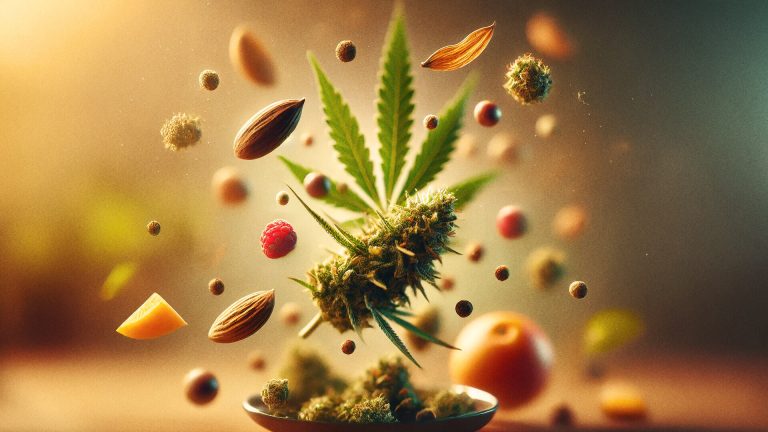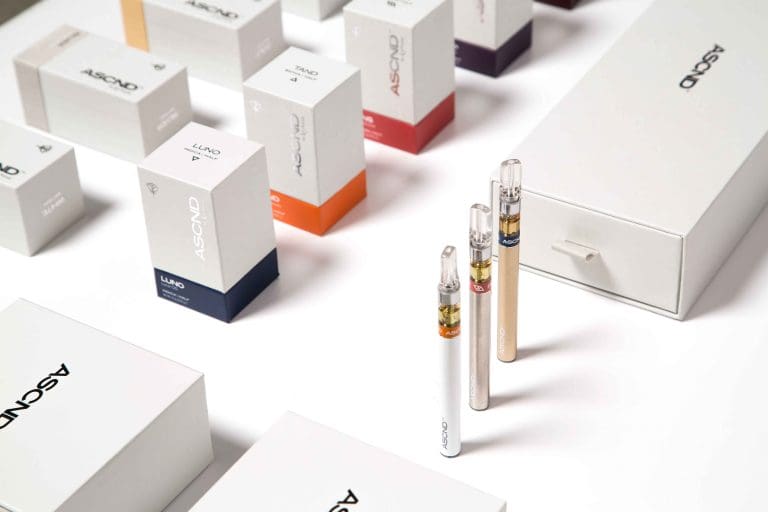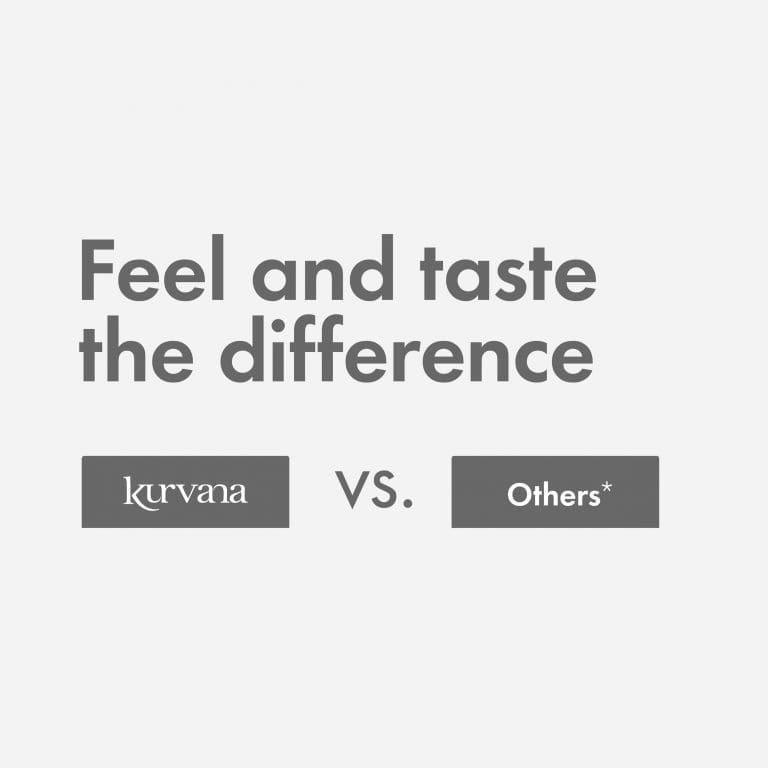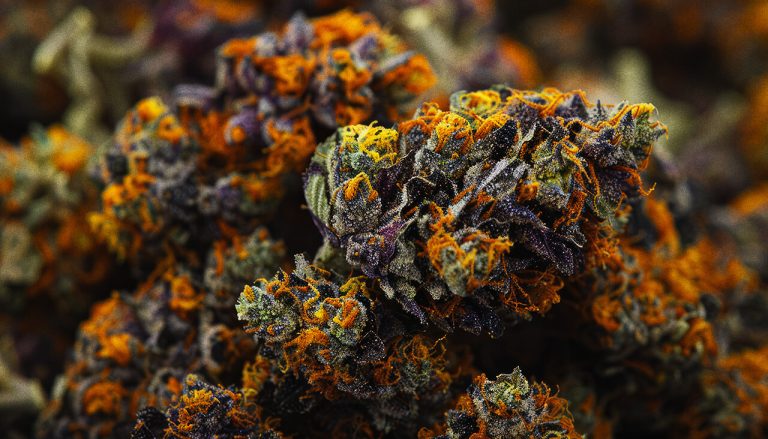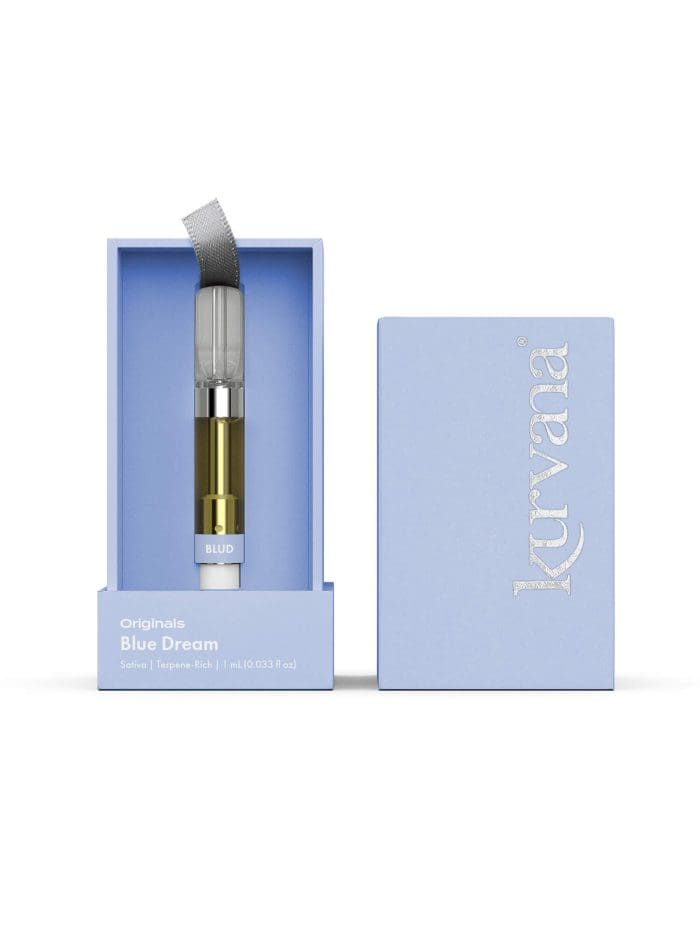
What is THCa and Why Does It Matter?
If you consume cannabis, you’re probably very familiar with the cannabinoid THC. It is the psychoactive component of cannabis, and is the ingredient most people seek out when choosing cannabis vapes for potency. However, THC (delta-9-tetrahydrocannabinol) is not actually present in the raw cannabis plant. THCa, or tetrahydrocannabinolic acid, is the precursor to THC, and it is one of the primary cannabinoids found in all cannabis plants. In fact, although THCa is often overlooked, it is the essential component needed to produce THC. In this article we’ll discuss why THCa matters, what it does and doesn’t do, and how it is being used in cannabis products today.
THCa vs THC
As mentioned above, THCa is present in all cannabis plants, and is the precursor to THC. People often ask, does THCa get you high? The short answer is no. In its raw state, THCa is not psychoactive. When cannabis plant material is harvested and dried, it contains THCa rather than THC. In order to make THC, the THCa must go through a process called decarboxylation. While that may sound like a tedious process, it’s actually very simple, and you can even do it on your own.
THCa converts into THC when exposed to heat, such as smoking, vaporizing, or cooking. This decarboxylation process involves the removal of a carboxyl group (COOH) from THCa, transforming it into THC. It happens naturally every time you smoke cannabis, or when you put cannabis flower into a dry herb vaporizer. Whatever your method, as the plant heats up, the THCa converts rapidly into THC. All THC cartridges contain delta-9 tetrahydrocannabinol (THC), the compound formed from THCa that has undergone decarboxylation.
What are the Benefits of THCa Compared to THC?
Scientifically, THCa has garnered as much interest as THC and CBD for its potential therapeutic properties. While research is still in its early stages, some studies suggest that THCa may possess anti-inflammatory, neuroprotective, and antiemetic properties. However, more research is needed to fully understand its mechanisms of action and therapeutic potential. There are no known THCa side effects
THC Vapes vs THCa Vapes
THCa is primarily found in raw or minimally processed cannabis products, and can be present in many smaller quantities in some concentrates.
You won’t find any pure THCa vape products (other than raw cannabis flower) such as THCa cartridges, simply because there isn’t enough demand. THCa carts might offer a therapeutic benefit, but the heating process will decarboxylate the THCa resulting in the familiar onset of effects of THC. Some consumers prefer products high in THCa specifically for its potential therapeutic effects without the psychoactive properties associated with THC. THCa-rich products include raw cannabis juice, tinctures, and certain edibles that have not undergone decarboxylation.
THCa is present in many of Kurvana’s CARBON21 line of concentrates. Our Lemon Walker Diamonds indica cartridge, for example, contains 12.39% THCa. For those who prefer sativa effects, our Mango Mojito Badder offers an elevated trip to the tropics with 9.04% THCa content.
All of the concentrates in our CARBON21 line are made in small batches from the whole live cannabis plant.
THCa and Raw Cannabis Concentrates
Raw cannabis concentrates include products such as live resin, full-spectrum extracts, diamonds, sauce, badder, and hash rosin which are extracted from fresh or flash-frozen cannabis plants. These concentrates typically retain a significant portion of THCa along with THC and other cannabinoids. They are prized for their rich cannabinoid and terpene profiles, offering a full-spectrum experience.
In recent years, there has been growing interest in raw cannabis concentrates, which can contain significant amounts of THCa. These include:
Live Resin
Live resin is a cannabis concentrate made from fresh-frozen cannabis plants that have been harvested immediately after cultivation and cryogenically frozen to preserve the plant’s terpene profile. The extraction process typically involves using hydrocarbon solvents like butane or propane to extract cannabinoids and terpenes from the frozen plant material. Live resin retains a high concentration of terpenes and can contain significant levels of both THCa and THC, providing a flavorful and aromatic experience.
Full Spectrum Extracts
Full spectrum extracts are concentrates that aim to preserve the full range of cannabinoids, terpenes, and other compounds found in the cannabis plant. These extracts are often made using a variety of extraction techniques, including solvent-based and solventless methods, with a focus on retaining the natural balance of cannabinoids and terpenes. Full spectrum extracts can vary in consistency and cannabinoid profile, but they typically contain significant levels of both THCa and THC, offering a well-rounded and multi-dimensional cannabis experience.
Diamonds
Diamonds are a type of cannabis concentrate characterized by their crystalline structure and high purity. These crystals are composed almost entirely of THCa, with minimal amounts of other cannabinoids and plant material. Diamonds are typically produced through a process involving solvent extraction and precipitation. They are prized for their potency and are often consumed by dabbing or vaporizing.
Sauce
Sauce, also known as cannabis sauce or terp sauce, is a highly flavorful and potent cannabis concentrate known for its high terpene content and viscous consistency. It is typically produced using a combination of extraction techniques, often involving hydrocarbon solvents like butane or propane. Sauce contains high levels of both THCa and THC, along with a rich array of terpenes. The sauce-like consistency comes from the separation of cannabinoids and terpenes during the extraction process, resulting in a sauce with cannabinoid-rich crystals floating in a terpene-rich liquid. Sauce is favored by many enthusiasts for its intense flavor profile and well-rounded effects.
Badder
Badder, also referred to as batter or cake batter, is a type of cannabis concentrate known for its creamy, whipped texture. It is produced using similar extraction methods as other concentrates but is whipped during the post-extraction process, resulting in a light and airy consistency. Badder can contain varying levels of THCa and THC, depending on the starting material and extraction techniques used. It is often prized for its smooth texture and potent effects, making it a popular choice among concentrate enthusiasts.
Hash Rosin
Hash rosin is another cannabis concentrate that can contain significant levels of THCa. It is made through a solventless extraction process, typically using heat and pressure to extract cannabinoids and terpenes from cannabis flower or hashish. The resulting product is a highly potent concentrate that retains much of the original cannabinoid profile of the starting material, including THCa. Hash rosin is often consumed by dabbing or vaporizing, and it is prized for its flavor and full-spectrum cannabinoid profile.
Kurvana’s Full-Spectrum Cannabis Oils and Concentrates
As we’ve explored, THCa stands as the raw, non-psychoactive precursor to THC, embodying vast potential in both the recreational and therapeutic spheres. By prioritizing whole plant extraction, Kurvana delivers a full-spectrum cannabis oil that retains the plant’s natural terpenes and cannabinoids, which sometimes includes THCa in our final product.
As we continue to uncover the benefits and applications of THCa, Kurvana remains at the forefront, crafting exceptional products that reflect our commitment to purity, innovation, and the holistic benefits of cannabis. Experience the difference that whole live plant extraction makes, and discover your perfect cannabis experience with us.
People Also Ask
How powerful is THCa?
THCa is not psychoactive in its raw form and is considered powerful in terms of its potential therapeutic properties, such as anti-inflammatory and neuroprotective effects, rather than its ability to induce a high.
Which is stronger, Delta 8 or THCa?
Delta 8 THC is psychoactive and provides a milder high compared to Delta 9 THC, whereas THCa is not psychoactive and does not produce a high until it is converted into THC through decarboxylation.
Is Delta 9 stronger than THCa?
Yes, Delta 9 THC is stronger than THCa in terms of psychoactive effects, as THCa does not produce psychoactive effects until it is converted into Delta 9 THC through heat or aging.
Is THCa legal?
The legality of THCa is complex and varies by jurisdiction. In places where cannabis is legal, THCa, as a component of cannabis products, may also be legal. However, the exact legal status can depend on local laws regarding cannabis.





